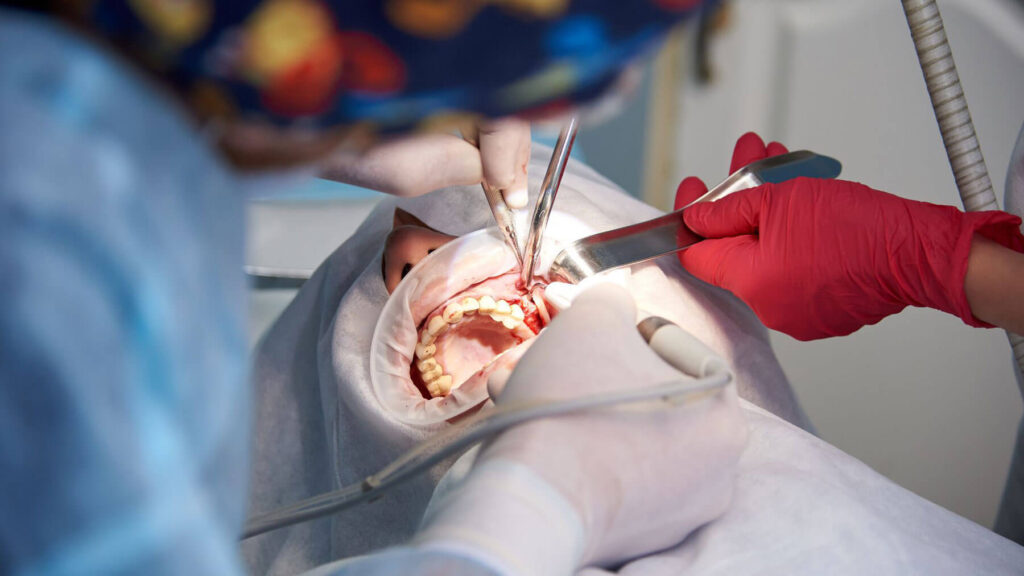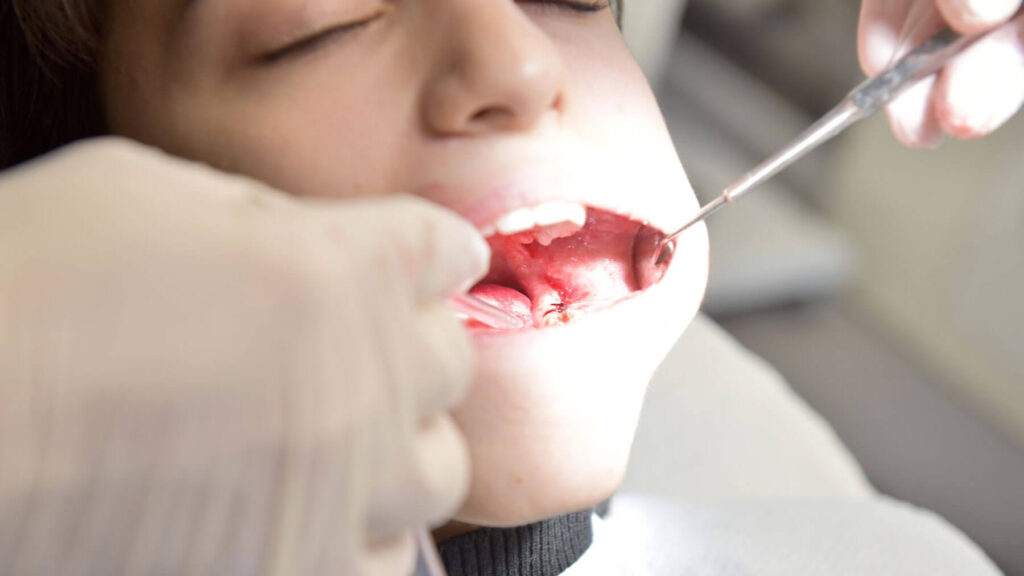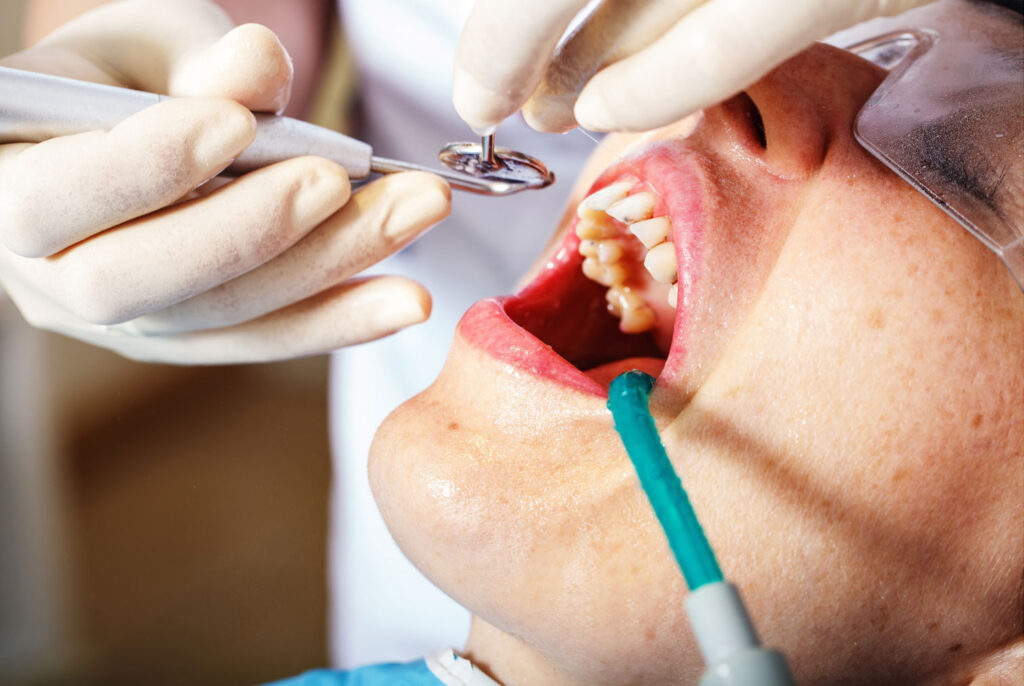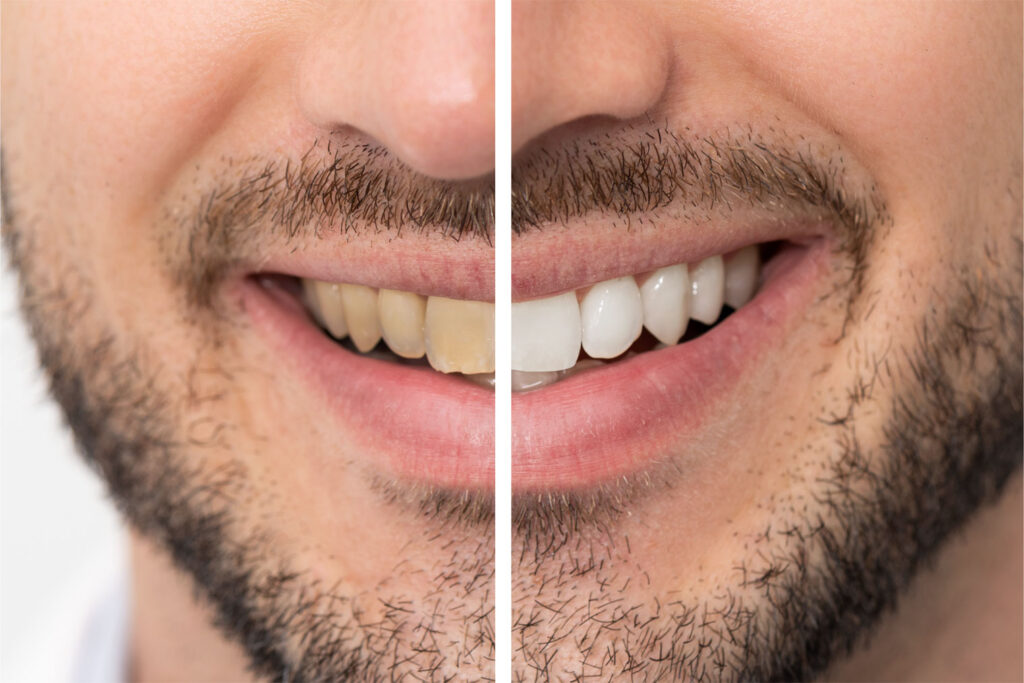Wisdom teeth recovery time depends on how complex your extraction was and how well you protect the clot during early healing. Generally, the most intense swelling and discomfort lasts a few days to about a week, and then you’ll feel steady improvement.
Here’s a breakdown of average healing times for simple versus complex extractions:
For Simple Extractions (Erupted Wisdom Teeth) 🙂
If your wisdom teeth had already fully come through the gum line and your dentist removed them easily, you may feel significantly better in 2–3 days.
Most pain and swelling typically fade during this period, so you can often return to light activities in 3–4 days (as long as you avoid anything strenuous).
However, the socket still needs more time to heal fully, even if you feel “back to normal.”
For Complex or Impacted Extractions ⚠️
If your wisdom teeth were impacted (stuck under gum or bone), recovery usually takes longer because the procedure involves more tissue and sometimes bone remodeling. In that case, expect 5–7 days of noticeable swelling and tenderness, plus several weeks for deeper healing.
No matter the complexity, follow your post-op instructions closely to protect healing and avoid setbacks. If you need support, our team at Smiles for Health can guide you through aftercare—especially after dental extractions.
Helpful in-house resources:
In addition, following the right aftercare steps can shorten your wisdom teeth recovery time and reduce the risk of complications.

Wisdom Teeth Recovery Time Timeline: What Does Normal Healing Look Like? ⏳
However, understanding the typical recovery duration can help you feel calmer—and more prepared—through each phase:
(Surgery Day) 🧊
- Expect discomfort as anesthesia wears off; take medication as directed.
- Swelling may begin gradually, even if it feels mild at first.
- Light bleeding is normal, so bite gently on gauze as instructed.
- For meals, stick to cool, soft foods and avoid straws.
- To support healing, rest and skip strenuous activity.
Day 2–3 (Peak Swelling) 😮💨
- Pain/Swelling: Many people feel the worst swelling around this window, and then symptoms begin to ease.
- Eating: Continue soft foods; don’t “test” crunchy textures yet.
- Hygiene: Start gentle saltwater rinses if your dentist approves.
Day 4–7 (Turning the Corner) ✅
- Pain: You should notice daily improvement.
- Eating: Add soft-chew foods gradually (think tender pasta, eggs, soft fish).
- Activity: Resume light routines, but skip heavy exercise.
Week 2+ (Deeper Healing) 🌿
- Pain/Swelling: Mostly gone.
- Eating: You can return toward normal, but stay cautious with hard or sticky foods.
- Full healing: Gums improve in weeks, while deeper bone healing takes longer.

What Slows Down Recovery From Wisdom Teeth Surgery? 🚫
However, a few common habits can extend your recovery if you’re not careful. If you want a smoother wisdom teeth recovery time, avoid the most common healing “speed bumps”:
- Smoking or vaping: It can disrupt clot stability and delay healing.
- Straws or forceful spitting: The suction can dislodge the clot and trigger dry socket.
- Poor oral hygiene: Food trapping near the site can raise infection risk.
- Too much activity too soon: Heavy workouts can increase bleeding and swelling.
- Crunchy/spicy/acidic foods early: These irritate tissue and can lodge in sockets.
Indeed, Dry socket pain often appears 1–3 days after removal, so don’t ignore a sudden pain spike.

How Can I Speed Up My Wisdom Teeth Recovery? ⚡
You can’t rush biology, but you can support it—especially in the first week:
- Ice packs (first 24–48 hours): Use 15–20 minutes on/off to reduce swelling.
- Saltwater rinses (after 24 hours): Rinse gently and let water fall out—don’t spit hard.
- Hydration: Drink plenty of water, and sip carefully (no straw).
- Soft, protein-rich foods: They support tissue repair, so plan easy meals.
- Rest + elevation: Sleep with your head slightly raised to help swelling.

When Should I Call My Dentist During the Healing Process of Wisdom Teeth Recovery? ☎️
Call right away if you notice any of the following:
- Bleeding that doesn’t slow after firm gauze pressure
- Severe pain that worsens after day 3 (possible dry socket)
- Fever, pus, or a strong foul taste/odor
- Swelling that increases after day 3 instead of improving
- Trouble swallowing or breathing (urgent emergency)

Is Full Recovery Different for Impacted vs. Erupted Wisdom Teeth? 🧠
Yes—because the procedure is different.
Erupted Wisdom Teeth (Simple Extraction) ✅
They’re accessible, often require minimal tissue work, and typically heal faster.
Impacted Wisdom Teeth (Surgical Extraction) ⚠️
They may require gum incision, possible bone adjustment, and stitches—so swelling and soreness last longer, and soft foods matter even more.
Frequently Asked Questions
How long does wisdom teeth recovery take for most people?
Usually 7–14 days for comfort; however, deeper bone healing can take longer.
When can I eat solid foods again after removal?
Typically around day 3–5 for soft solids; then, advance slowly as tenderness improves.
Is swelling normal after surgery?
Yes—swelling often peaks around days 2–3; afterward, it should decrease steadily.
How do I avoid dry socket?
Avoid straws and smoking; additionally, don’t spit or rinse forcefully early on.
When should I worry about pain after extraction?
If pain suddenly worsens after day 3, call your dentist because it may signal dry socket or infection.
Does impacted removal take longer to heal?
Yes—because it’s more surgical, you may need extra days of soft foods and rest.






